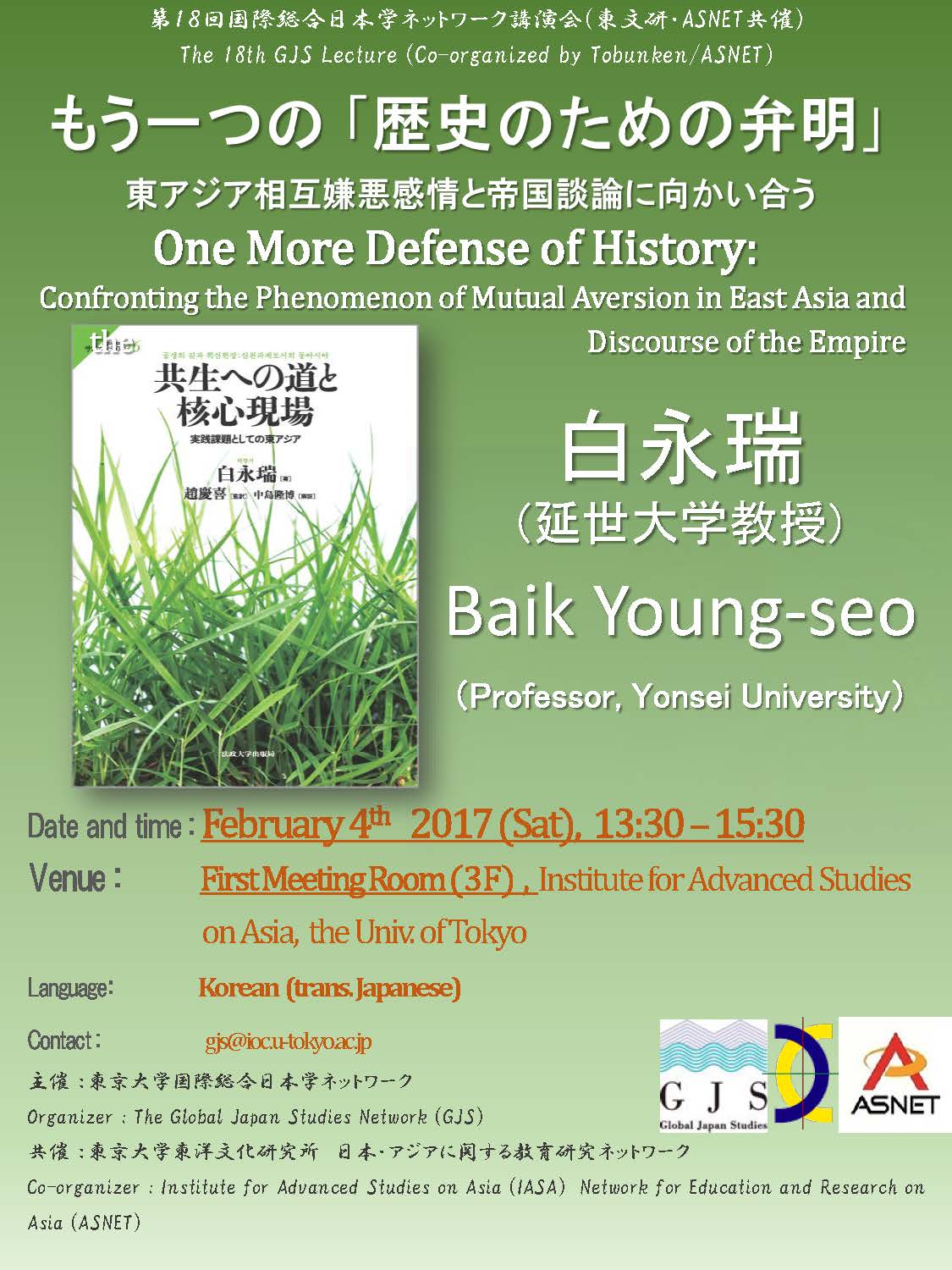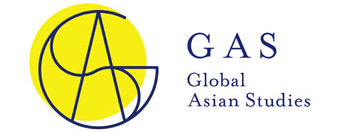The 18th GJS LectureOne More Defense of History: Confronting the Phenomenon of Mutual Aversion in East Asia and the Discourse of the Empire
| Date and time: | February. 4, 2017 (Sat.), 1:30-3:30PM |
|---|---|
| Venue: | First Meeting Room (3rd Floor), The Institute for Advanced Studies on Asia, University of Tokyo |
| Speaker: | Baik Youngseo (Professor, Yonsei University) |
| Language: | Japanese and Korean with Japanese translation |

Abstract: The debate about the usefulness of the humanities has been ongoing in various societies. I believe the humanities are useful and feel the responsibility to explain why they are useful. History can be expected to demonstrate its usefulness by critically entering the real world, proposing social issues for academic discussion, and put forward intellectual frameworks that can re-conceive social problems. As one case of example, I will focus on the issue of emerging mutual aversions between East Asian societies. Historical sensibilities and structural division in epistemology in East Asia formed after the Sino-Japanese war of 1894-5 have been in operation in connection with changing forms of merging of geo-political tensions and the heterogeneity of politico-social institutions in the region. That process inflects an angle with which to view the phenomenon of mutual aversion and its background: the emergence of China. Since the 1990s, East Asian structural division started to disintegrate but recently a new crisis in the region is fanning the feeling of mutual aversion. While recognizing the importance of the “China element” in the operation of this feeling, it is important to understand the context and process of the empire discourse as well as understanding structurally the difference between Korea, Taiwan, and Japan. This understanding will help us to historicize and relativize that mutual aversion. I think this is how I can explain the usefulness of historical study – utilize the methodological features of history to intervene critically in the real world. This operation will also enable historians’ self-critical examination of the space of everyday life in which they work.
Organizer: The Global Japan Studies Network (GJS)Co-organizer: Institute for Advanced Studies on Asia (IASA), Network for Education and Research on Asia (ASNET)
Contact: gjs[at]ioc.u-tokyo.ac.jp



